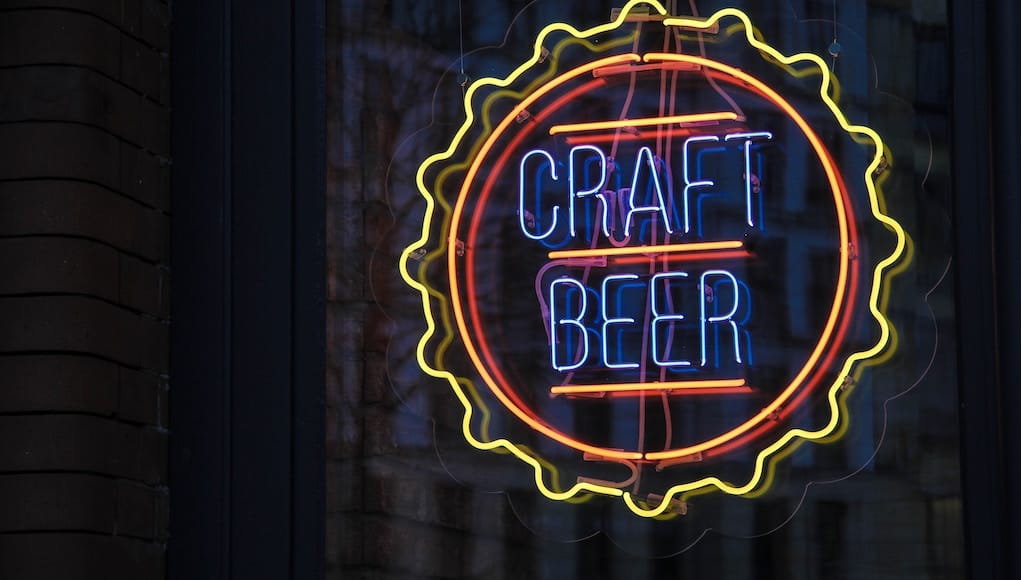3 Things Education Can Learn from the Craft Beverage Phenomenon

A couple of years ago, I wrote a piece called 5 Things That Schools Can Learn From the Food Truck Phenomenon. Some thought it was funny. Some thought it was pertinent. I thought it was appropriate. One, I am routinely advocating for education, as well as educators, to look outside the field of education for ideas and innovation. Two, I loved the inspiration, innovation, creativity and customization that the food trucks were offering and wanted education to be inspired to do the same.
Well now, I’m taking it one step further. I have been a craft beer lover for over 30 years. The huge and recent popularity of craft beer in America has motivated me to beg the question: What can education learn from the craft beer movement? Well, here are three main ideas:
1. Keep It Simple Smarty
Just like food trucks, craft beer establishments have moved in the direction of simplicity. They are about good and unique beers. They leave things like food to others. The current, and most successful model is for craft beer establishments to have the food be provided by various food trucks. They want to be experts in beer, not food. They don’t want to manage a kitchen. They want to provide a great beer menu and leave the unique food menus to the various food trucks they collaborate with on different days. Schools have long suffered from trying to do—or offer—too many things. Most schools have dozens and dozens of programs, initiatives and plans all trying to address hundreds of standards, needs and goals. If schools could focus—or simplify if you will—they might find their schools tastier (and maybe more successful).
Breweries, just like schools, cannot be good at everything. All of us need to figure out what we do best and then just do that. What is attractive about many charter schools, academies, pathways or magnet programs is that they tend to have a focus or specialization. They don’t do everything but get very good at something. When we visit a local brewery, we know that they have a specialty and are seeking them for that. Too many of our schools are not known for being really good at something or being the best at anything. And most schools cannot since they don’t specialize—they generalize.
2. People Don’t Know What They Don’t Know
Although craft beer has been around for a long time, it’s only recently in the last few years has it become mainstream. Across American cities and communities, local breweries are popping up everywhere serving dozens of varieties of high quality and unique brewed beverages to an anxiously awaiting consumer base. But just a few years ago, most of those consumers either didn’t drink beer at all or only drank mass-produced, mass-marketed inferior beer products that shall remain nameless. How did this happen? Well, never underestimate culture and trends. But also don’t underestimate better. Once people discovered there was something better, that’s what they wanted.
This reminds me of our mass-produced, mass-marketed educational systems and curriculum. We have the same old courses we’ve had forever, same old classrooms, same old textbooks (now often used digitally), same old teacher training programs, same old school schedules and structures, same old compliance instead of creativity. Admittedly, there are exceptions. Some things and some places have changed… but certainly not everywhere and certainly not dominantly. But just like people discovering that new, fresh squeezed IPA or fruity, tart sour beer, we have things like project-based learning, design thinking, true tech integration, micro-credentials and badging, personalized learning and more. Once the consumer—i.e. the student (maybe even teachers and parents too)—experience something better, they want more. Once a learner experiences truly transformational learning with things like high-quality, public projects and using professional tools/applications, they are not going to accept sitting at a desk reading a book or completing a worksheet. Once a local brewery goer has something fresh, unique and real, they can’t go back to a less tasty variety.
3. Make It An Experience
What we see as special or powerful in things like the craft beer movement goes beyond better and more expanded menu offerings. It goes beyond keeping it simple. It’s really about the experience. Most of our local breweries not only offer quality beverages; they also offer a high-quality social experience. In addition to having guest and rotating food trucks, they also offer pub quizzes, cornhole and other yard games and often live entertainment. Customers, as well as students, are looking for an experience. Almost everything we enjoy is about the place, the people and the unique moment. Because local breweries tend to be simple, specialized, social and fun, they create a unique experience each time. This is what is missing all too often in schools. Students are not having unique or special experiences. Learning should be just that—an experience. If we don’t shoot for that each and every day, then our education risks become fleeting, meaningless and disconnected. If most of us reflect upon our most impactful learning moments, we would identify them as experiences. We remember them and their impact because someone made it an experience.
Most of us that visit our favorite craft beer location could also easily stay home and enjoy craft beer from the store. However, we are opting for the craft beer experience. More and more, our students are searching, although sometimes unknowingly disguised as disengagement, for a better learning experience. At our craft beer locations, we tend to be in a fun environment that is focused not only on quality products, but quality socializing, playing and fun. That’s our challenge in education. Traditionally, our fun is what happens outside the learning (games, rallies, dances, etc.). But we need to make the learning part fun too. We don’t have to compromise rigor… just the opposite. Real rigorous learning is highly engaging, collaborative, applied, relevant and personalized. Science supports this too. The more we are engaged, the higher the level of learning.
Last Call
So next time you hear someone enjoying that Milk Stout or Hazy IPA, think about all of the students in our country who have yet to experience craft education. Let’s see if our school menus—what we learn—can look and feel a lot more like all the happy customers at local microbreweries across America.
For more, see:
- 20 Ways Blockchain Will Transform (OK May Improve) Education
- 3 Lessons Chipotle Can Teach EdTech
- Commentary: In Our Changing Economy, We Need New Flexible Education Systems to Usher in an Age of Agility for Tomorrow’s Workforce
Stay in-the-know with innovations in learning by signing up for the weekly Smart Update.
This article was originally published on Medium.







0 Comments
Leave a Comment
Your email address will not be published. All fields are required.